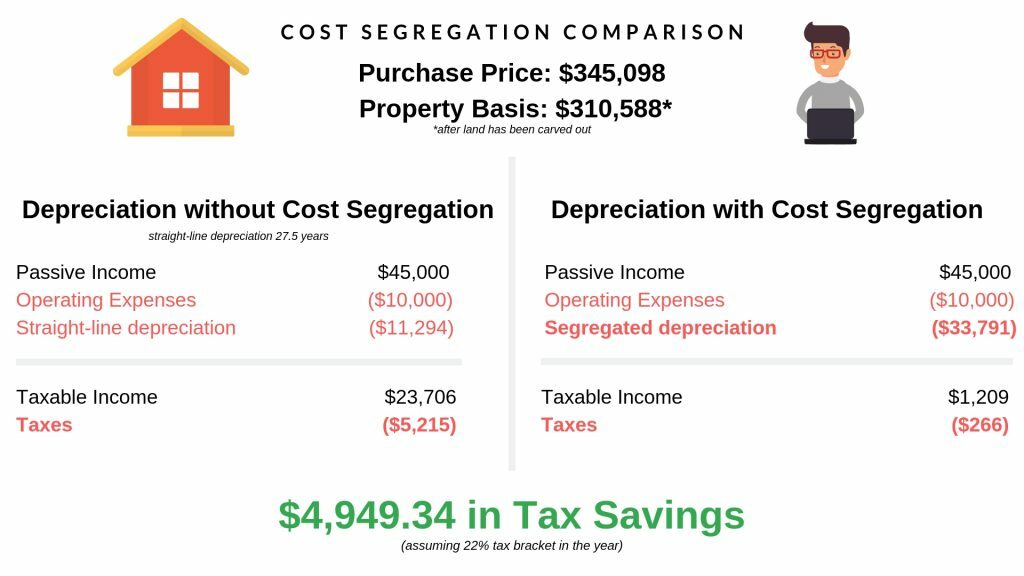By Melissa Dorman, October 29, 2019
I’m continually surprised at how many real estate investors don’t know about THE best tax advantage strategy that real estate has to offer.
The strategy that I am going to talk about can yield upfront cash flow faster for investors AND help reduce their current tax liability at the same time. I am pretty sure that I just got your attention and piqued your interest….
If you are ready to hold onto your hard earned cash flow, then say hello to cost segregation.
What is Cost Segregation?
Cost segregation is a tax planning strategy used by real estate investors that accelerates the depreciation of certain components of their properties. This amounts to a reduction in your current tax liability, resulting in upfront cash flow.
How exactly does it work? According to the IRS, a building normally depreciates its value over 39 years (non-residential) or 27.5 years (residential).
So, let’s say you own residential rental property. Without cost segregation, your property would be depreciated consistently (known as “straight line”) over 27.5 years. To use the analogy of a pie, that’s like slicing it into 27.5 equal slices and eating one a year.
Sure, that’s great and all, but everyone knows that most components, like carpeting, landscaping, appliances, and cabinetry, don’t last 27.5 years—particularly in rentals. To use the analogy of the pie again, that’s like depreciating the sugar, fruit, flour, eggs, etc, each ingredient of the pie, individually at different speeds.
With cost segregation, you can reclassify a portion of your assets as personal property instead of real estate property in order to depreciate them on a much, much faster schedule (such as five, seven, or 15 years) for tax purposes. This lessens your tax burden, thereby leaving you with more profit.
What Are The Financial Benefits Of Cost Segregation?
Cost Segregation helps in offsetting passive income through accelerated depreciation.
Below is a before and after scenario for Joe the Real Estate Investor:
Almost $5,000 in tax savings? Not too bad if you ask me!
To calculate that, like operating expenses the depreciation is an expense against income. With the $33,791 in depreciation captured through cost segregation, Joe was able to claim that total as a loss. Thus reducing his total taxable income even further to $1,209 versus $23,706.
Why Cost Segregation is More Beneficial Now Than Ever
With the enactment of the Tax Cuts and Jobs Act (TCJA) of 2017, we saw an increase in first-year bonus depreciation from 50 to 100 percent. With that said, I cannot stress how much more valuable cost segregation is to real estate investors. A cost segregation study will help you determine which assets qualify for 100 per cent bonus depreciation.
It is important to note that not all assets will pass the test. To be eligible, assets must have a tax recovery period of 20 years or less. Additionally, the used property must have been acquired and placed in service on or after Sept. 28, 2017, and before Jan. 1, 2023.
Conclusion
Make sure to check with your CPA beforehand to ensure cost segregation makes financial sense for you. When you’re ready, find a reputable company who does cost segregation utilizing the engineering approach. I personally have used Cost Segregation Services and have had an excellent experience. According to the IRS, this approach is considered the most accurate and defensible. Better to be safe than sorry!


